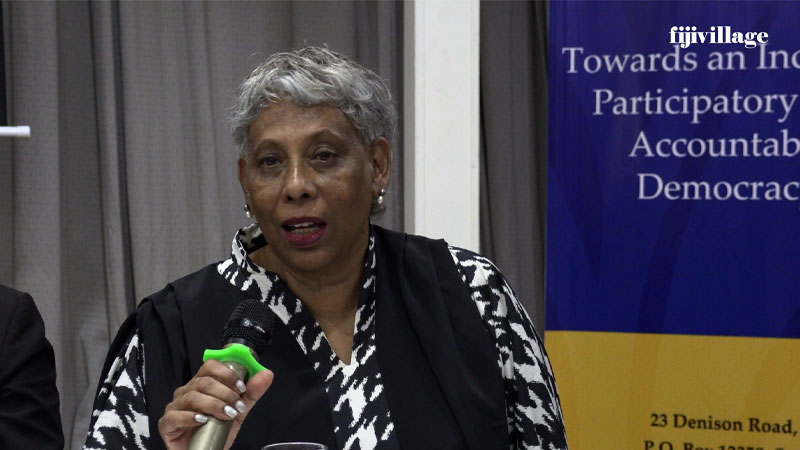
The time for talk fests is over and the governments and international bodies need to face up to the fact that many communities in the Pacific are on the brink of extinction through no fault of their own and they need meaningful solutions.
This has been voiced by University of Fiji Vice Chancellor Professor Shaista Shameem while speaking about the University’s newly established Ecological and Climate Crisis Legal Institute work, which made two key submissions this week, one to the Fijian Parliament and the other to the International Law Commission—providing legal and scientific solutions to climate and ecological crises in the Pacific.
Professor Shameem told the International Law Commission delegation visiting Fiji this week that the best way to approach international legal responsibilities in regards to the implications of sea level rise on the people of the Pacific is through the international legal peremptory norm contained in the right to self-determination of the people.
She says the right to self-determination is an international higher law that provided protection for peoples, collectively.
She further says this right does not necessarily include states but if states are involved in the protection of their peoples from the effects of sea level rise then it would include the representative states.
She adds that otherwise, communities affected could take their complaints to various organisations and international bodies themselves.
She says the UniFiji Ecological and Climate Crisis Legal Institute is working on different avenues for the protection of the right to self-determination of peoples breached by climate and ecological crises in Fiji.
The Vice Chancellor says a group of UniFiji scientists and lawyers are involved in the task which would provide a voice on behalf of vulnerable people.
Meanwhile, Professor Aziz Mohammed of the UniFiji JDP School of Law, representing the Ecological and Climate Crisis Legal Institute, told the Standing Committee of Foreign Affairs and Defence that Fiji should ratify the already signed Agreement on the Use of Marine Biological Diversity of Areas Beyond National Jurisdiction without reservations.
He says it is important that Fiji should ratify the BBNJ early so as to be able to participate meaningfully and decisively in the subsequent first conference of parties to showcase Fiji’s leadership and influence over international policy on marine scientific research.
He further says Fiji would thus be able to protect its interests regarding activities on the high seas surrounding Fiji.
Professor Mohammed says ratifying the agreement would also put Fiji at the forefront of new developments in sustainable tourism and will contribute significantly to building the nation’s economic profile.
He says UniFiji’s submissions mark the first major advocacy effort of the Ecological and Climate Crisis Legal Institute as the University’s think tank on climate and ecological crises.
Stay tuned for the latest news on our radio stations

